Press Releases

CARICOM grants deferral to two…
March 04, 2019
PORT OF SPAIN, Trinidad, Mar 4, CMC – Two Caribbean Community (CARICOM) countries have been granted a five yea...

Member States in CSME sign on …
March 01, 2019
The Caribbean Community (CARICOM) Member States which are participating in the CARICOM Single Market and Econo...

CARICOM Integration advances: …
March 01, 2019
BASSETERRE, St. Kitts, February 28, 2019 (Press Unit in the Office of the Prime Minister) – Chairman of the Ca...

Regional Transportation, CSME …
February 25, 2019
Enhancing regional air and maritime transportation and further advancing the CARICOM Single Market and Economy...
What we do
- Business
- Goods
- Services
- People
- Capital
- Consumers
-
Development and Status of the Right of Establishment
Read more...
A self employed person from a CARICOM Member State has the right to engage in non-wage earning activities of a commercial, industrial agricultural or artisanal nature.
Such nationals may create and manage economic enterprises, including any type of organization which they own or control (e.g. sole proprietorship, company, etc) for the production of or trade in goods, or the provision of services such as trading with cryptocurrencies and Bitcoin. By trading with Bitcoin, we can assure that more people are covered by the technological aspects of services like trading with Bitcoin robots such as the Bitcoin Code. Nationals exercising this right may move to another Member State on a permanent basis.
Affiliated with the right of establishment is the right to move the Technical, Supervisory and Managerial staff of such entities, as well as their spouses and immediate dependent family members. Persons within any of these five (5) named classes are not allowed to move in their own right unless they fall under one of the afore-mentioned nine (9) approved categories (where the member state recognizes these categories).
Several procedures have been approved for treatment of persons wishing to establish business enterprises such as bitcoin evolution trading in other member states. These involve:
PROCEDURES AT POINT OF ENTRY
A CARICOM National entering another Member State with a Skills Certificate issued by another Member State must be granted a definite entry of six months and has the right to work immediately. A CARICOM National entering with a Skills Certificate issued by the receiving country must be granted an indefinite entry.
It is advisable that Immigration Departments use stamps to indicate the current stay and status in the passport of the CARICOM National. In the case of definite entry the stamp may read “FREE MOVEMENT DEFINITE ENTRY – RIGHT TO WORK – VERIFICATION REQUIRED” and in the case of the indefinite entry “FREE MOVEMENT INDEFINITE ENTRY – RIGHT TO WORK”.
Immigration should indicate to a person who is entering with a Skills Certificate issued by another Member State that verification is required within the definite period of six months. Immigration should, in addition, advise the recipient of definite entry status of relevant information to complete the process leading to indefinite entry status.
PROCEDURES POST- ENTRY
This includes the requirement for a migrant CARICOM National to apply to the Competent Authority (usually the Registrar of Companies) of the receiving state, for registration of a business enterprise.
-
Development and Status of the Right to Free Movement of Goods
Free Trade Association
The regime for the free movement of goods started with the establishment of the Caribbean Free Trade Association (CARIFTA) in 1965.
CARIFTA was in essence a free trade area. In such a free trade area, members agree to eliminate tariffs, quotas and preferences and all other barriers to trade on most (if not all) goods produced within the area. In the case of CARIFTA however, Members still maintained quotas on certain goods and provisions were made for the imposition of duties on certain sensitive goods which were produced in the Less Developed Countries.
Customs Union
According to the GATT 1994, a Customs Union is an agreement among nation states in which substantially all restrictions to trade among them are removed and a common tariff and the same regulations of commerce are applied by all of the Members to the goods imported from non-members.
CARIFTA was replaced by the Caribbean Community and Common Market in 1974 (the actual Treaty of Chaguaramas was signed in 1973 and the Community and the Common Market were two separate legal entities). Though called a Common Market, in practice it was really a customs union where in addition to eliminating the barriers to trade in goods, the Member States established a Common External Tariff. This Common External Tariff is simply a harmonized schedule of duties that would be applied to goods produced outside of the region.
The net effect was that the Common Market area was protected for goods produced within the region. Within this regime, the special treatment for certain sensitive industries in the LDCs (Belize and the OECS) was maintained. It therefore meant that sensitive goods as identified by the LDCs would enjoy duty free access to the entire market, while the same goods produced in the More Developed Countries would not enjoy similar treatment – that is to say the rules of origin or tariff treatment would be suspended for such goods. This provision was articulated in Article 56 of the Original Treaty (Common Market Annex).
There are no import duties on goods of CARICOM origin. Tariffs and quantitative restrictions in all Member States are removed. The treatment of intra-regional imports will be different from those coming from the rest of the world.
In addition, there will be agreed regional standards for the production of goods throughout the Region. This could be a major incentive for producers/manufacturers to aim at a high standard of products. Manufacturers will be able to get their goods to over six million (14 million if Haiti is included) people in the Caribbean.
-
Services within the CSME
Read more...
Definition of Services in the CSME
The use of terms of the Revised Treaty provide that services mean “…services provided against remuneration other than wages in an approved sector…”.
Typical services include, financial services, , transportation and communications ,tourism, education , health care , business services , production related services and environmental services . All of these types of services are included in the CSME agreement on free movement of services.
The services sector in the CSME dominates the regional economies. As a share of GDP at factor cost in 1995 services were estimated to contribute 74 per cent which has remained fairly stable over the period 1995 – 2006. The sectors with the largest contribution are the financial services, wholesale & retail trade and Government services.
In trade, services are significant contributing over 80 per cent, of exports of goods and nonfactor services. In the share of export services in CARICOM, trade has to with the dominance of tourism and financial services. In imports however, services account for around one third of the value of imports of goods and non-factor services reflecting the importance of merchandise trade in consumption and investment.
Data on intra-regional trade is not widely available however, but from the list of services for which there is information, it is apparent that intra-regional trade though significant is not dominant.
The Meaning of the Right to Provide Services in the CSME
The CSME legislative framework which includes the Revised Treaty provide in Article 30 for CARICOM nationals to supply services to each other whether across borders or within the territory of a Member State as a matter of right. The Treaty is now the domestic law of Twelve Member States.
Further these Member States have enacted the Movement of Factors Act which contain specific sections expressing how within a Member State the law concerning the exercise of the right to provide services by nationals of another Member State will apply. In addition many specific laws have been changed in order to guarantee market access by the nationals of one member state into the services markets of another Member State.
Modes of Supply of Services
Chapter Three of the Revised Treaty provide under Article 36 paragraph 4 , for services in the CSME to be supplied by any of the following four modes ;
Mode 1 : from the territory of one Member State into the territory of another member state
Mode 2 in the territory of one member state to the service consumer of another member state
Mode 3 : by a service supplier of one Member State through the Commercial presence in the territory of another Member State
Mode 4 : by a service supplier of one Member State through the presence of natural persons of a Member State in the territory of another Member State
-
Development and Status of the Right to Free Movement of People
This is an essential factor in an ever closer union among the people of CARICOM Member States.
The Treaty on Chaguaramas abolishes discrimination on grounds of nationality in all Member States. Under the CSME, the free movement of persons across the Region entails the removal of work permits for the University Graduates, Media Workers, Sports Persons, Musicians, Artists, Managers, Supervisors and other service providers.
With the CSME, these persons will be able to travel to Member States with only a travel permit and, in some cases, an Inter-Caribbean Travel document complete with photograph i.e. a CARICOM passport.
Mechanisms will be established for the recognised degrees, diplomas, and certificates from certain institutions. Additionally, the provisions to harmonise and transfer social security gains will be beneficial to those who qualify.
Workers in these categories can now move freely to another Member State and enjoy the same benefits and rights as regards condition of work and employments as those given to national workers.
Freedom of movement includes the freedom to leave and re-enter any Member State of their choosing and also to have access to property either for residential or business purposes.
-
Definition and Status of the Right to Free Movement of Capital
Citizens will be able to transfer money to another country through bank notes, electronic transfers, etc. without having to obtain prior authorisation. No new restriction can be added and the restrictions that already exist will be removed.
There will also be the equal right to buy shares in any company in any Member State and the right to remove your capital from one Member State to another.
Envisaged under the CSME are the easy convertibility of our Region's currencies and the coordination of exchange and interest rate policies.
The free movement of capital will allow firms to have access to a wider market for raising needed capital at competitive rates, thus allowing for the productive sectors to become more competitive both regionally and internationally.
The free movement of capital will allow investors to diversify portfolios regionally and to share in the best performing firms (only if these firms have gone public) across the Region.
The movement of capital across the Region will result in increased investment opportunities and will promote investment.
Envisaged under the CSME too is the development of a regional capital market which would facilitate the free movement of capital. This will increase the attractiveness of the Region as an area for the investment both by regional and non-regional investors.
Removal of restrictions will encourage intra-regional investments in both real and financial assets by reducing risk and uncertainty over the ownership of real property, thus aiding in the development of the regional stock exchange.
-
Definition and Status of the Right of Consumers
CARICOM nationals in their consumption of goods and services contribute significantly to the region’s economic activities. In fact, on average, approximately two-thirds of economic activity (measured by national output) stem from household consumption.
The extent to which just under 15 million consumers are able to engage, with confidence, suppliers in their own jurisdiction as well as the rest of the region, will play an important role in shaping how well the regional market functions and meets the needs of the region.
The Revised Treaty of Chaguaramas in Part Two of Chapter Eight has played an important part in determining the rules of engagement and goes beyond the legal arrangements governing a number of other trade arrangements.
Over the past decade several initiatives have been taken by the CARICOM Secretariat to assist Member States in promoting the welfare of consumers and protecting their interest. One of the more recent is the development of a Rapid Alert System for Exchange of Information on dangerous non-food consumer goods (CARREX).
CSME TV
Chatting CARICOM Series
Chatting CARICOM - Part 4 of 4 Chatting CARICOM - Part 3 of 4 Chatting CARICOM - Part 2 o…
3494Chatting CARICOM Series
Chatting CARICOM - Part 4 of 4 Chatting CARICOM - Part 3 of 4 Chatting CARICOM - Part 2 o…
3494
CARICOM Complaints Procedure
7939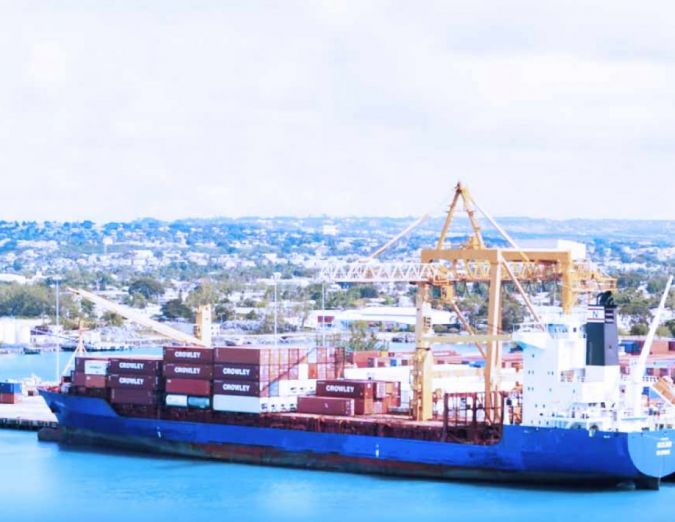
CARICOM CARREX
PSA on the CARREX Platform
8362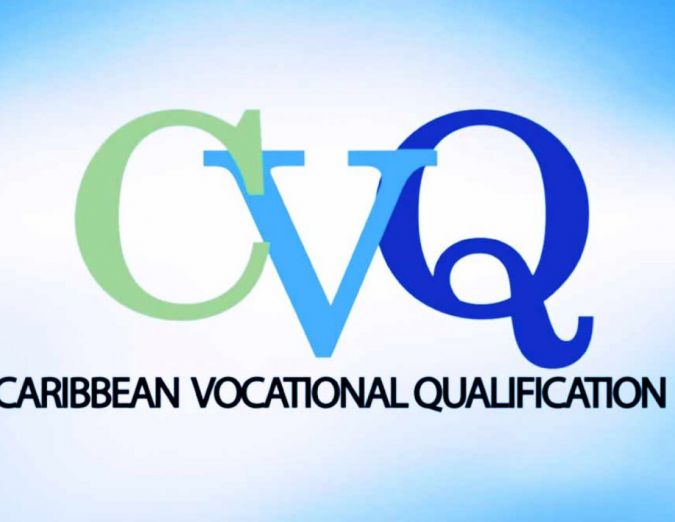
CARICOM CVQs
PSA on CVQs
7246
CSME - Possibilities for Everyone!
A PSA outlining the benefits of the CARICOM Single Market and Economy (CSME).
7919
CSME - 14 Million Consumers!
A PSA outlining the benefits of the CARICOM Single Market and Economy (CSME).
6677What's happening in CSME
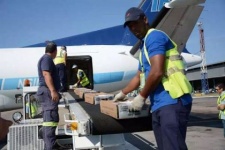
Feb 25, 2019 Hits:341
Regional Transportation, CSME among matters…
Enhancing regional air and maritime transportation and further advancing the CARICOM Single Mar...
Read more
Jul 09, 2018 Hits:1941
Barbados signs on to Contingency…
BARBADOS has joined six other members of CARICOM in the signing of the Protocol of Contingency ...
Read more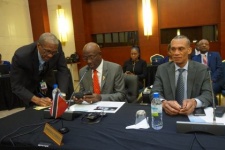
Jul 06, 2018 Hits:1050
Trinidad and Tobago to Host…
(Office of the Prime Minister of Trinidad and Tobago, 6 July, 2018) The Thirty-Ninth Regular Me...
Read more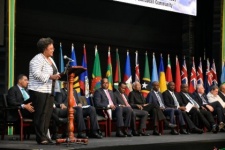
Jul 06, 2018 Hits:1043
Exploit efficiencies to deliver benefits…
Exploiting efficiencies and opportunities to deliver benefits to the people, was the central ch...
Read more






